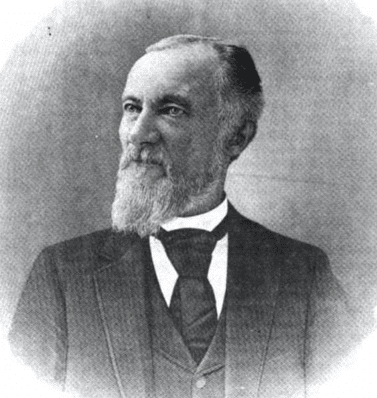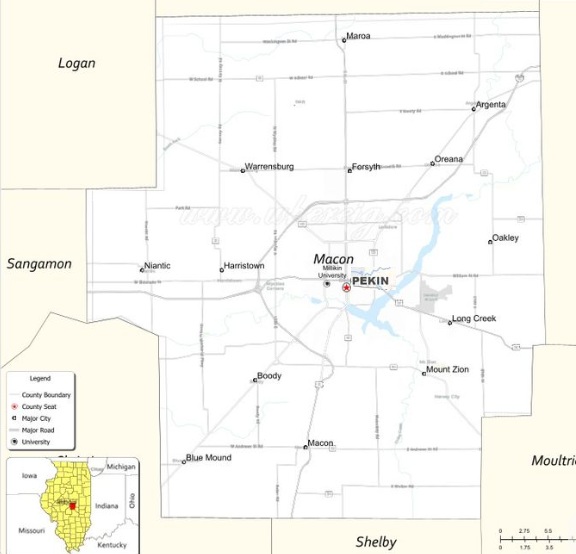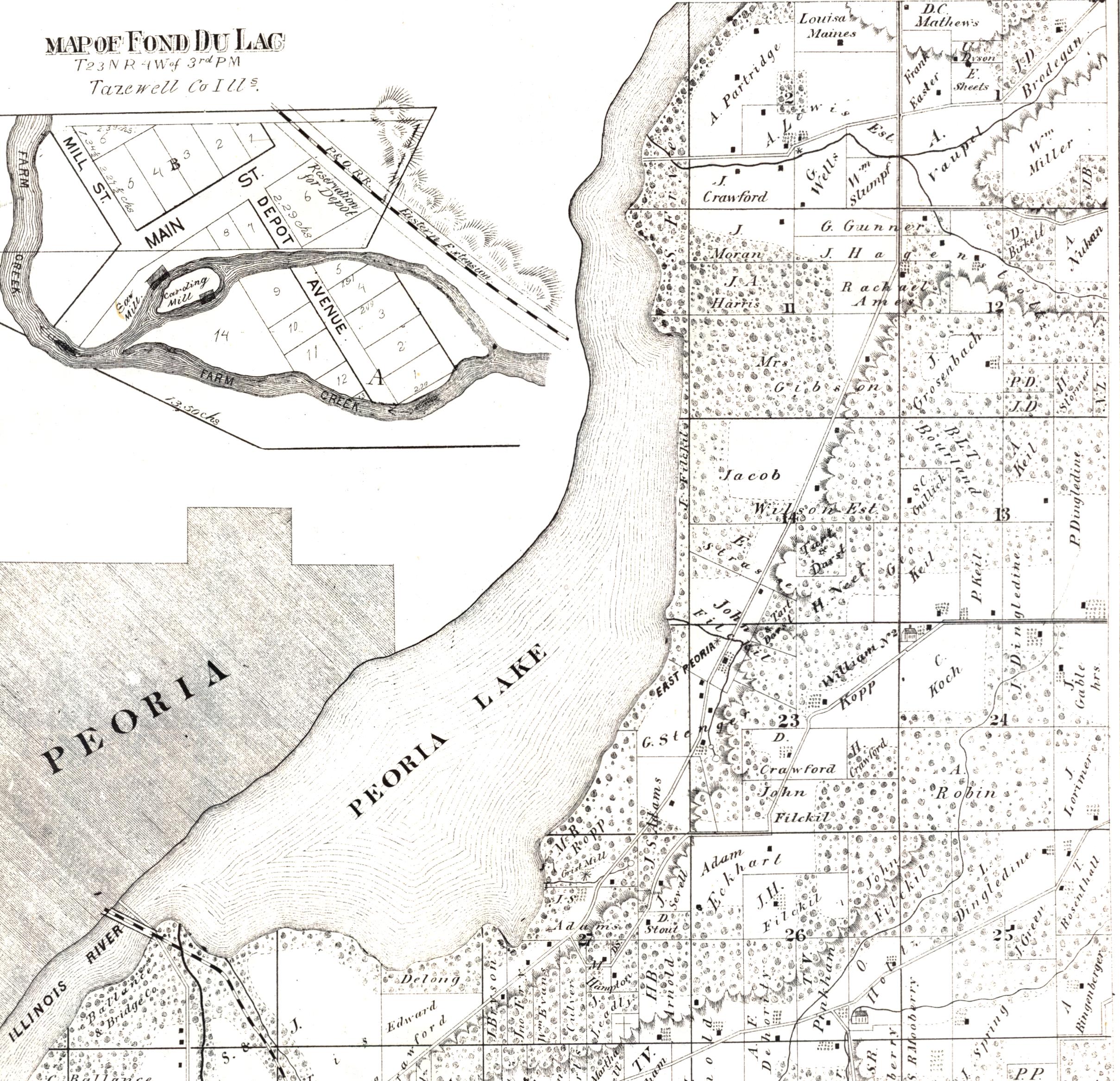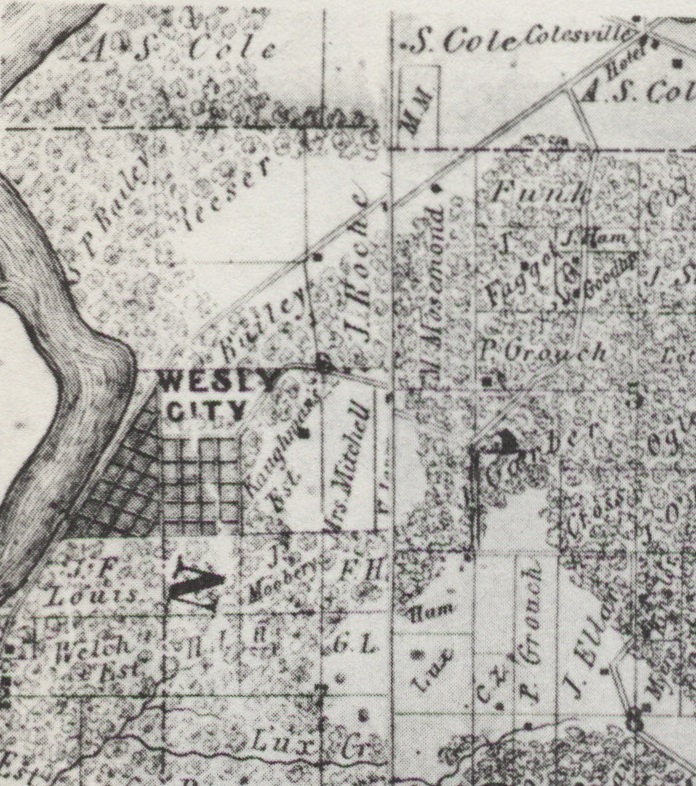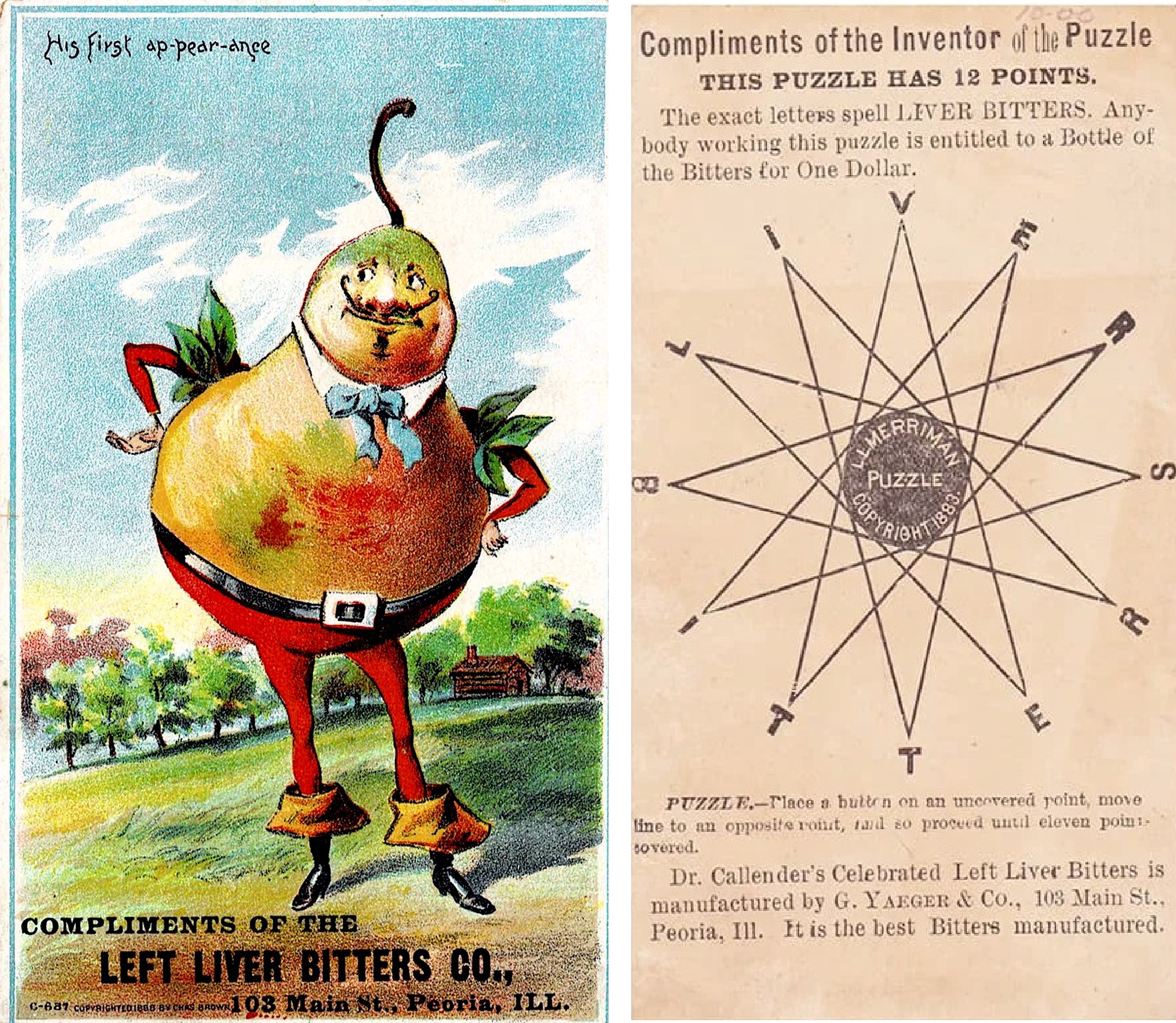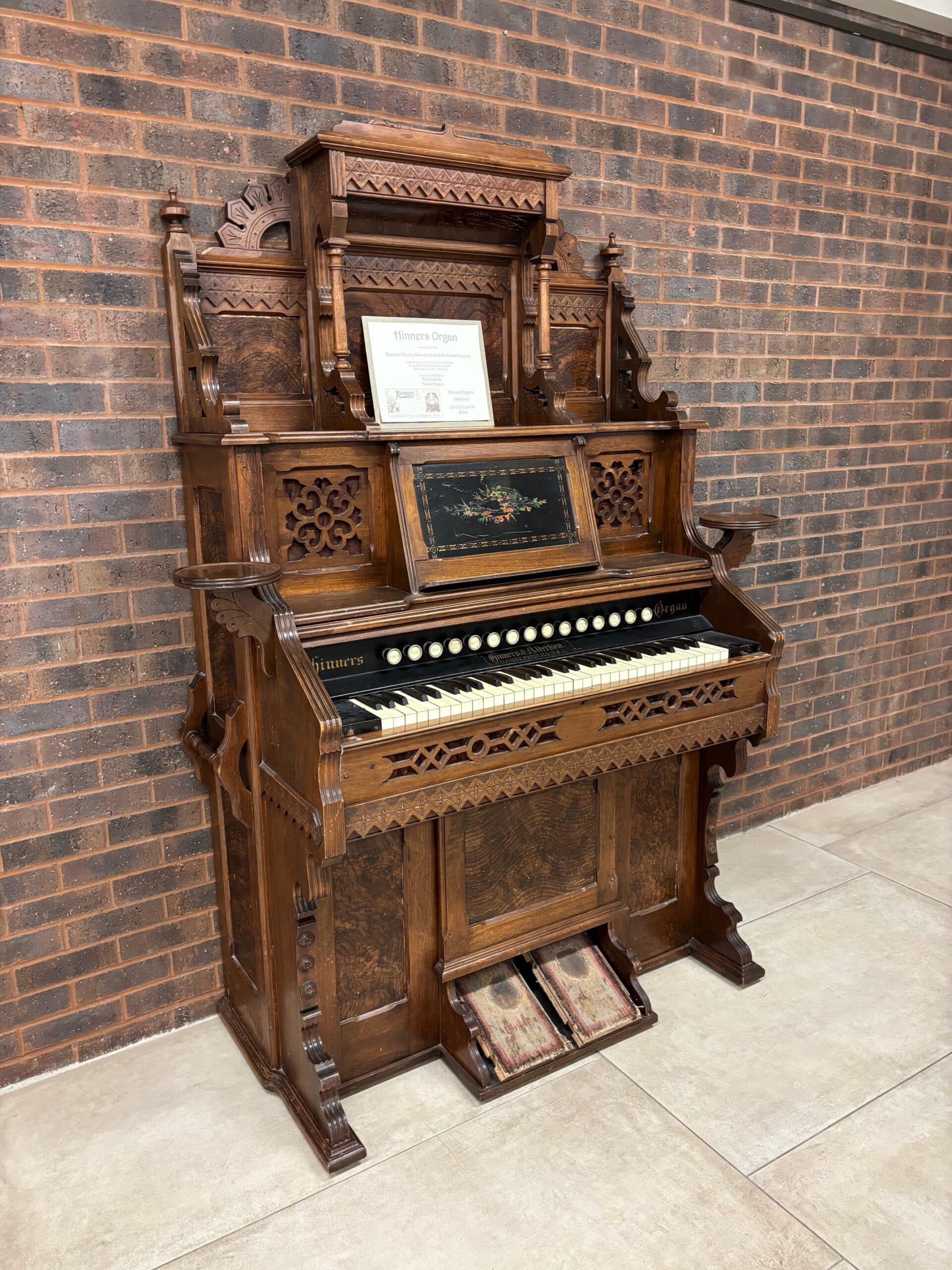Among the prominent business leaders of Pekin’s past, the name of John F. Schipper (1838-1893) is still well-remembered despite his earthly life having ended 132 years ago. The reason for the endurance of his memory is that he was a co-founder of a beloved department store that enjoyed great longevity in Pekin’s historic old town district: Schipper & Block, often referred to simply as “Schipper’s.”
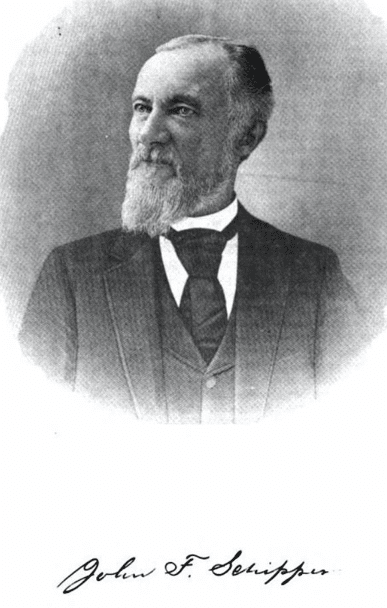
As we have previously recalled here at “From the History Room,” Pekin’s downtown saw a succession of three Schipper & Block buildings at the southwest corner of Court and Capitol street, but the business began under a different name in a building on Margaret Street. In 1863 or 1864, the firm of C. Bonk & Co. ran a dry goods store with John F. Schipper as Bonk’s partner. After Bonk’s death, Henry C. Block joined the company, which became the Schipper & Block Co., located at 304 Margaret St., a block north of the corner of Court and Capitol which later would become its location.
In 1874, Schipper and Block moved their store to the corner of Court and Third streets – at 302 Court St., next to the post office. As their business thrived, they opened a second shop at 332 Court St., the corner of Court and Capitol streets, on 12 Oct. 1879. Some years later they opened a store in Peoria which soon after became the largest dry goods operation in Illinois outside of Chicago. The Peoria store became a Carson Pirie Scott in 1961.
The company’s name was changed to Block and Kuhl Co. on Jan. 1, 1914, when Theodore Kuhl became president – but the “Schipper & Block Co.” sign remained, so everyone continued to call it the Schipper & Block building. Another fire in Feb. 1922 destroyed the “new” building, but by December of that year the company had rebuilt at the same location. That was the structure that stood until two years ago, when the Tazewell County Board demolished it and the historic Arcade Building next door to make way for their planned new county courthouse.
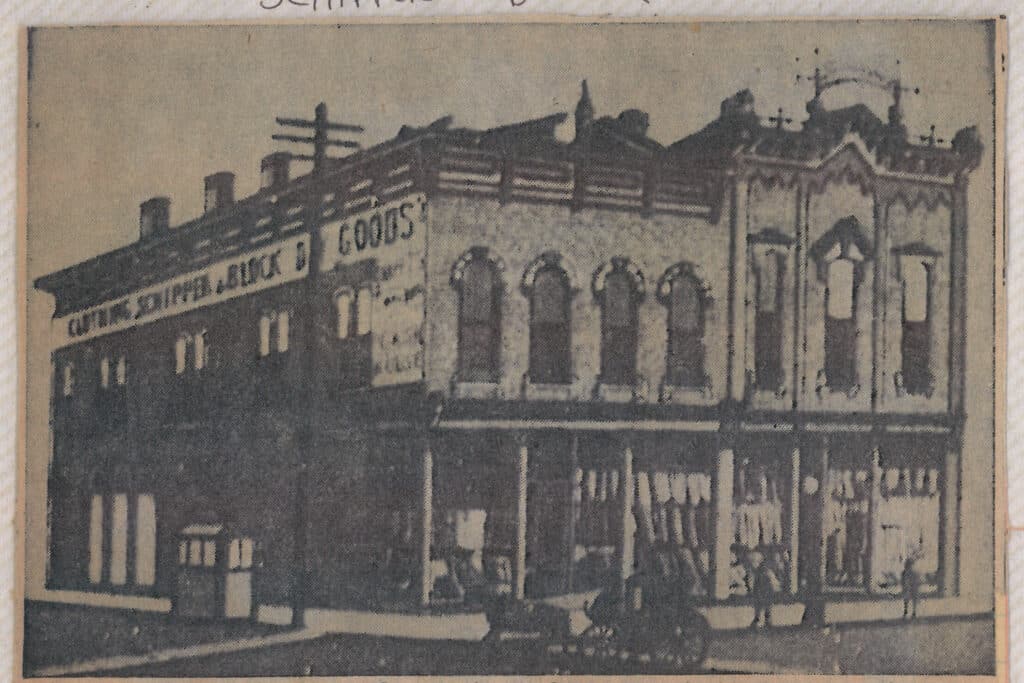
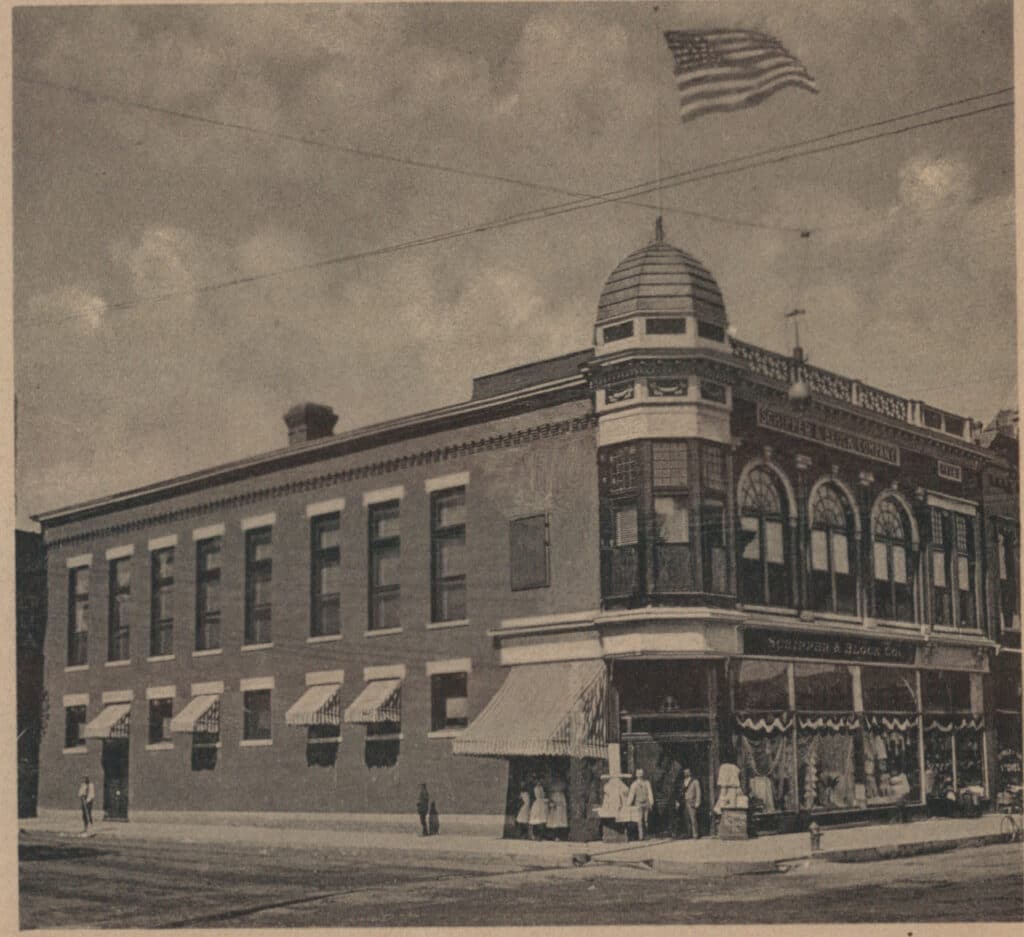
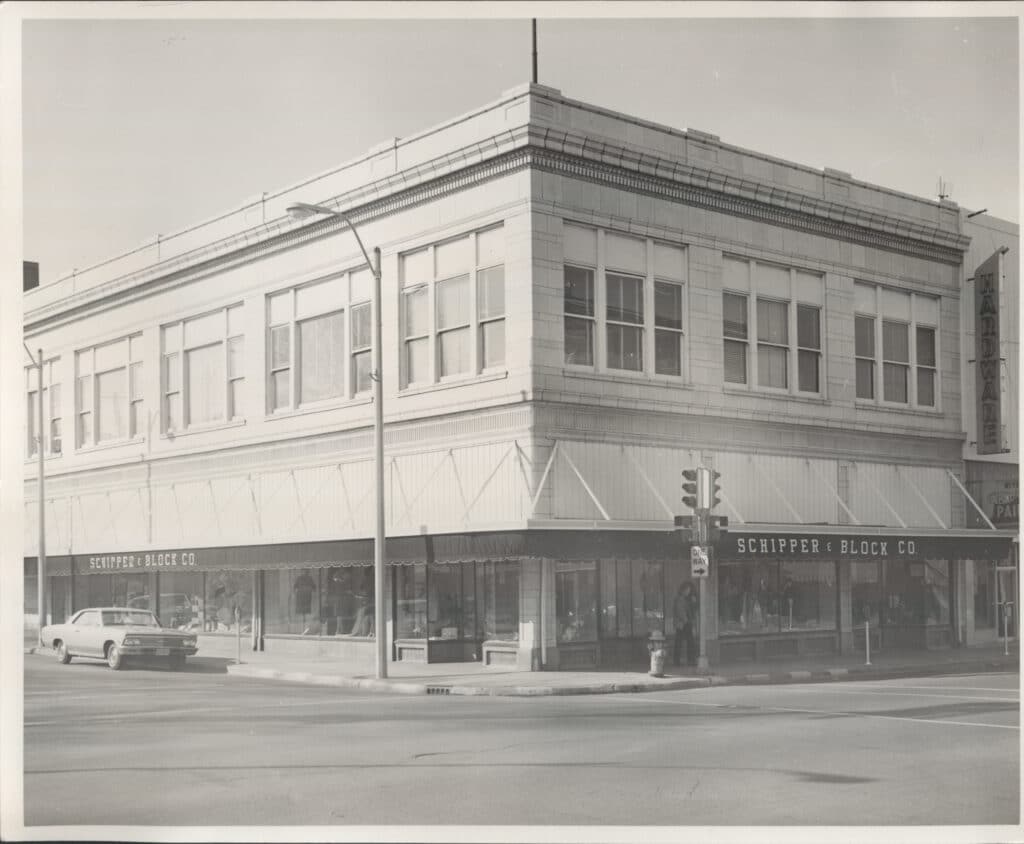
Schipper died Sept. 25, 1893, in Louisville, Ky., while on his way home from Block Island near Rhode Island, where he had gone for a rest due to his ill health. Block continued to operate the business until the turn of the century, when the Pekin store operations consolidated at the corner of Court and Capitol streets.
That came about as the result of a fire in 1898 that destroyed the Schipper and Block store at the corner of Court and Capitol streets. A new structure was erected in its place. Then around 1900, Block sold a considerable amount of his holdings in the Pekin operation to George Ehrlicher, who had been Block’s right-hand man for many years. It was about that time that the decision was made to close the store at 302 Court St. and consolidate in the newer building at 332 Court St.
George Ehrlicher’s sons George Jr. and Arthur took over the business after their father, and they kept the business going until May 1962, when business reverses made it necessary for them to sell the store. George Jr. died in Sept. 1962, just four months after the sale. The new owners, Harold Whaley of Ottawa and William T. Malloy of Peoria, were unable to return the business to profitability, however, and the store went bankrupt in 1964, when a receiver was appointed. The store limped along for another four years, finally going out of business in March 1968. Within the next year, Allen’s Vogue moved from its former address, 313 Court St., into the Schipper & Block building, operating from that location until 1984 (with a second location in the Pekin Mall from 1972 to 1986).
After Allen’s Vogue closed its downtown location in 1984, the Schipper & Block building would remain vacant for about a decade. In the 1990s, the vacant building was acquired by Tobin Brothers, which remodeled it as an office building and leased it to the Illinois Department of Children and Family Services. Illinois state government budget troubles led to the closing of that office about a decade ago, and the old Schipper & Block building remained vacant until the county acquired it for the purpose of demolishing it.
Thus, the visible legacy of John F. Schipper in downtown Pekin endured for 130 years after his death.
A biographical sketch in tribute to Schipper’s life and career was published in the 1894 “Portrait and Biographical Record of Tazewell and Mason Counties,” pages 247-248, and is here reproduced in full:
JOHN F. SCHIPPER, deceased, was for many years identified with the business interests of Pekin, and in every relation of life was known as a most liberal, influential and public-spirited man. His high moral character and unswerving devotion to right principles gave him a prestige among his fellow-citizens which it is the privilege of few men to enjoy.
Mr. Schipper was born December 22, 1838, at “Wundel” the old family home, near Wirdummer, Ostfriesland, Germany. His parents, Frederick and Charlotta (Johnson) Schipper, occupied the old family place, which for over two hundred years had been in possession of the Schipper family, and is now owned and occupied by the youngest son, Gerhart. The father filled responsible positions under Napoleon I., and afterward with the German army, fighting with the latter against Napoleon at the great battle of Waterloo. He died at the old home in 1876, at the advanced age of eighty-five years, an honored and wealthy citizen, surviving his wife by many years.
John F. Schipper, the subject of this sketch, was the third of five sons, and remained at home until he was seventeen years of age. He then entered a business college, where by his studious habits and eager desire for knowledge he obtained a most excellent education. His college life ended, he sought and obtained a position in a dry-goods store in Emden, and subsequently spent two years in Rotterdam, Holland. Here his health failed, and he returned home with the intention of going to Japan. To this his father objected and in 1865 he came to America. Pekin became his home, and for the first six months he was employed as clerk in the store of M. Heisel, but the amount of courage, enterprise and brains with which he was endowed, pre-eminently fitted him for a business career, and together with C. Bonk, a partnership was formed, which under the firm name of C. Bonk & Co., on Margaret Street, became one of the leading dry-goods stores of the city.
Upon the death of Mr. Bonk, Henry Block was taken into partnership under the firm name of Schipper & Block. In 1874 they moved to Court and Third Streets. Their increased business led them to build a large double store at the corner of Court and Capitol Streets, to which they removed. A few years later a branch store was established at Peoria, and in an increditably (sic) short time was at the head, becoming the largest dry-goods enterprise in the state outside of Chicago. Mr. Schipper was also President of the Schipper & Block Carpet Company located at Peoria. As an outlet to his untiring energy, other enterprises engaged his attention. He was a large stockholder and Director in the Teis Smith Co.’s Bank, had extensive interests in Wyoming and Colorado, and with several others bought and assumed control of the Pekin Gas Works.
On the 3d of November, 1869, Mr. Schipper was united in marriage with Miss Anna Look, daughter of Mr. and Mrs. Ibe Look. She was born and grew to womanhood in Pekin. Her parents were born in Germany, but came to America at an early age. The family located in Limestone, Peoria County, where the grandfather (also an old Waterloo veteran) died. Mr. Look was engaged in the wholesale and retail grocery business in Pekin for twenty-live years. He was a stanch Republican, and a leading and influential citizen whose word was as good as his bond. He died in Pekin in 1876, at the age of fifty-one years. Mrs. Look, nee Miss Lena Steen, came to America with her parents, of whom she was deprived at an early age, as both fell victims to cholera, at that time so prevalent in this country. Mrs. Look survived her husband a number of years. Her death occurred in Pekin in 1889, at the age of fifty-six years.
Ten children were born to Mr. and Mrs. Look, of whom but four sons and one daughter reached mature years, Mrs. John F. Schipper being the eldest. She is a most estimable lady, beloved by many friends, and widely known in the community in which she resides as a lady of culture and refinement, well fitted to adorn the high social circle in which she moves. Her marriage with Mr. Schipper proved a particularly happy union. All of the many who have so often shared the hospitality of their beautiful home bear testimony of the genial happy character of its host and hostess.
Six children came to bless their union, three daughters and three sons. Charlotta, the eldest daughter, died at the age of two years; Martena, at the age of one year, and Leonora, a bright, winsome girl, died at the age of seventeen. The loss of her husband and children has fallen with almost crushing force upon Mrs. Schipper. The care and education of her three remaining children, Karl, Ibe and Frederick, is now the one all-absorbing interest of her life.
During 1873 Mr. and Mrs. Schipper went to Europe, visiting the World’s Exposition at Vienna and the country seat of the Schipper family, making extended travels in Germany and other parts of Europe during their stay of six months. In 1892 they visited the Pacific Coast, enjoying together the delights of the varied and beautiful scenery of that region.
Mr. Schipper took a deep interest in all educational pursuits and in whatever added to the interests of the community in which he lived. He was a large-spirited, philanthropic citizen, affable and agreeable without ostentation. He was not a politician, but took a deep interest in all that related to the good government of the country of his adoption. In religion he was a Lutheran, but was too free from narrow mindedness to be either sectarian or partisan. He was several times elected Alderman, and served two different terms as School Inspector. In each capacity he served faithfully and efficiently.
In 1893, with a hope of regaining his failing health, accompanied by Mrs. Schipper, his children and a nurse, he went to Block Island, near Rhode Island. Here the best medical aid which could be procured was obtained, but every effort proved unavailing, and at Louisville, Ky., on his way homeward, his spirit took its flight, on the 25th of September, 1893. The news of his death caused widespread grief among his many friends and acquaintances in Pekin, and on the day on which he was laid to rest, a vast concourse came together to pay the last tribute to him, who by his uprightness and nobility of character had won for himself an unsullied name and a high place in the hearts of his fellowmen.


